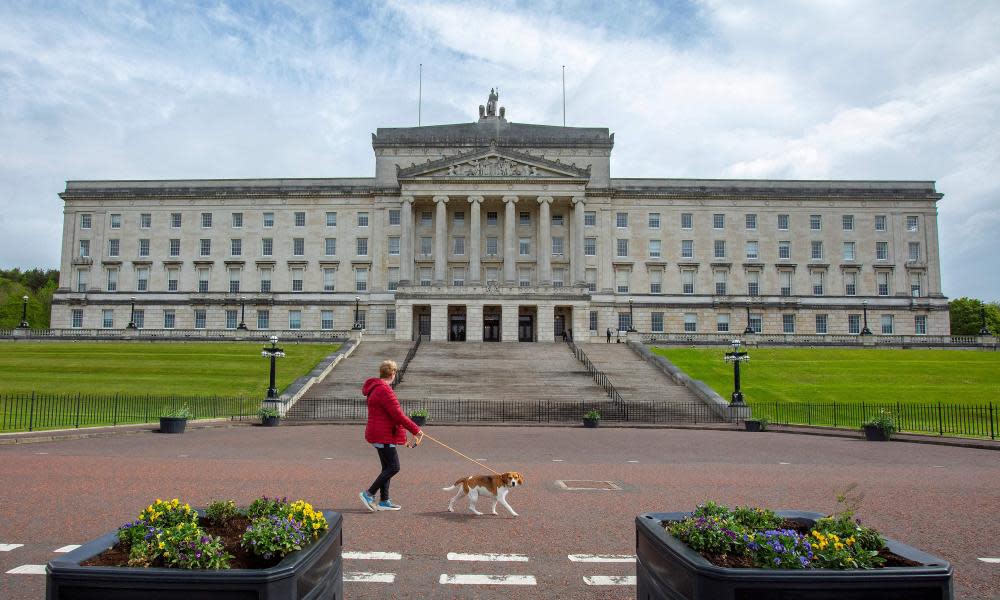Northern Ireland voters back Windsor framework – poll

People in Northern Ireland who support Rishi Sunak’s post-Brexit deal vastly outnumber those who oppose it, according to a survey.
Asked if they opposed the Windsor framework, just 16.9% of voters agreed, suggesting there is a desire to move on from political battles over trading arrangements. Overall 45% of voters did not oppose the revised deal, with around a third neither agreeing or disagreeing.
Nationalists were slightly more opposed to the deal than unionists – 19.1% versus 15.7% – underlining a widespread belief it was a victory for unionism.
The Irish News and the University of Liverpool’s Institute of Irish Studies published the findings on Wednesday as the House of Commons prepared for the first parliamentary vote on the deal agreed last month by Downing Street and the European Union.
The Democratic Unionist party (DUP) and hardline Brexiter Conservative MPs said they will vote against the so-called Stormont brake, a centrepiece of Sunak’s deal, citing flaws in the purported veto for Northern Irish politicians over new EU regulations. The government is expected to win the vote with Labour support.
The poll, conducted between 3 and 14 March before the DUP said which way it would vote, showed that 56.2% of unionists believe the Windsor framework removed many negative consequences of the protocol, with 11.4% disagreeing and 22.2% neither agreeing or disagreeing. The figure for nationalists was 54.9% agreeing, 6.2% disagreeing and 30% neither agreeing or disagreeing.
Almost half of DUP voters, and 44.9% of all unionists, said the revised deal meant Sir Jeffrey Donaldson’s party should revive the Stormont assembly and executive. About 13.8% of DUP voters, and 15.7% of all unionists, said the DUP should not revive Stormont, while about a quarter of both groups expressed no preference.
The DUP collapsed power-sharing last year in protest against the protocol, saying it undermined the region’s position in the UK. The party has come under pressure from London, Dublin and Washington to revive devolved government in advance of next month’s 25th anniversary of the Good Friday agreement.
Two-thirds of nationalists and 55.8% of people who are neither nationalist or unionist want the DUP to revive Stormont.
Almost three-quarters of DUP voters agreed that the campaign by unionist parties to highlight problems with the protocol led to better outcomes – a perception that has underpinned a DUP recovery in the polls.
“They are getting recognition from their own supporters that ‘standing up’ against the protocol worked,” said Peter Shirlow, director of the Institute of Irish Studies. “The stance they took was popular among DUP voters and evidently they see it as having achieved [success] in spirit, if not detail.”
The findings revealed a tacit rebuke to non-unionist parties that had demanded the protocol be implemented in full. About 62.9% of unionists agreed that such parties underestimated the need to renegotiate the protocol, while 40% of nationalists, including 42% of Sinn Féin voters, agreed.
“What I think is really interesting is how so many SF voters agree that parties who wanted full implementation were misguided,” said Shirlow.

 Yahoo News
Yahoo News 
